Mike Hubbard trial day 6: Gov. Robert Bentley takes the stand
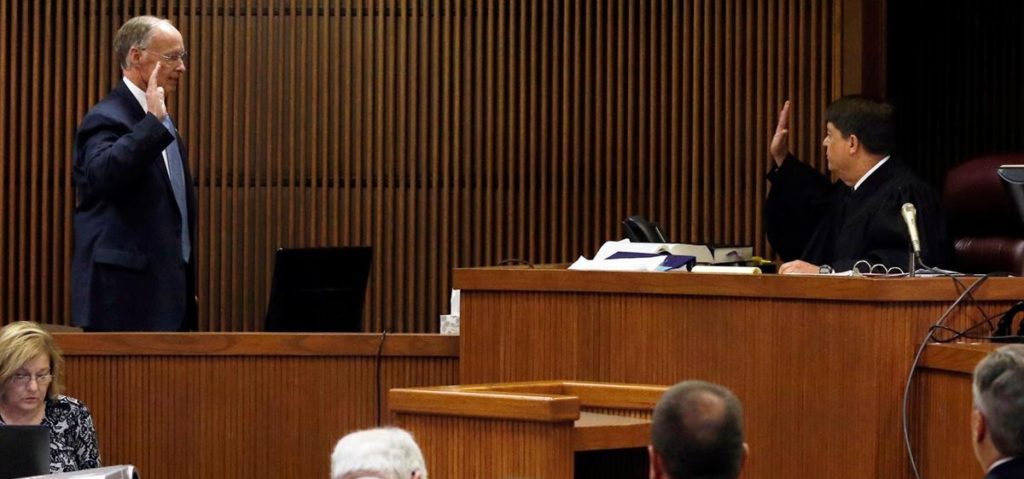
Easily the most high-profile witness to date testified Wednesday morning in the trial of indicted Alabama House Speaker Mike Hubbard. Alabama Gov. Robert Bentley took the stand at 9 a.m. to gasps and finger pointing by surprised jurors. In under 20 minutes, Bentley testified that he remembers meeting with Hubbard to discuss what he described as economic development projects. Prosecutors are seeking to prove Hubbard was being paid up to $12,000 a month to illegally lobby the governor on behalf of his business clients.. A state prosecutor showed Bentley reports Hubbard sent his clients describing how he met with the governor on projects that could benefit them. The governor testified he recalled the meetings. During the cross-examination, lead defense attorney Bill Baxley asked if it was Bentley’s opinion that Hubbard’s actions were in the best interest of Alabamians. Bentley explained that it was. And that he believed the projects were good for the Yellowhammer State because they would bring jobs. “Yes, sir. It was because it was jobs,” Bentley said before the captivated courtroom. Like Hubbard, Bentley has found himself at the center of his own scandal in recent months, having admitted making sexually charged remarks to a former female aide. Next up on the witness stand was lobbyist and long-time Hubbard acquaintance Dax Swatek. Swatek testified Hubbard asked him to invest in Craftmaster Printers, but declined as he thought it would be illegal. “I told him that it was at a minimum bad perception and my understanding of the ethics law was that he could not ask and I could not give,” Swatek testified. “To me, a there is a perception issue there. Two is that the investment idea was something that wasn’t appealing to me, but also three, the ethics law states, based on my training and understanding, that a legislator can’t ask a lobbyist for anything and a lobbyist can’t give anything back,” Swatek said, as he explained Hubbard was seeking investments from several contacts to keep his business afloat. Hubbard’s defense team argued the charges Hubbard faces for soliciting investments from lobbyists and principals, such as Swatek, are exempt due to an exception for friendship in the state’s ethics law. Will Brooke, an executive at a finance firm and former chairman of the Business Council of Alabama, took the stand next and testified Hubbard asked for his help to devise a plan to save his company. He agreed to help Hubbard and later presented him the idea to get a group of people to make $150,000 investments in exchange for preferred stock in Craftmaster to help make the company solvent, and that he himself invested $150,000. “This was a way he could support himself and be free and independent,” Brooke testified to the merits of his plan. Prosecutors argued Hubbard broke state ethics law by soliciting advice from Brooke, a board member at the Business Council of Alabama. Former state senator and Mountain Brook-Republican Steve French was next on the stand to testify that he introduced Hubbard to Sterne Agee CEO Jim Holbrook, whom Hubbard is accused of soliciting and receiving a $150,000 Craftmaster investment. French served in the state Legislature alongside Hubbard until 2010, and worked under Holbrook at Sterne Agee from 2010 to 2014. “He and Mr. Holbrook had never met and they had never talked. So he was, I guess, asking for a warm introduction,” French testified of Hubbard approaching him with the investment plan. French testified under an immunity agreement he signed with prosecutors in the Hubbard investigation. Hubbard was indicted in October 2013 on 23 felony ethics charges of using his political office for personal gain. If convicted, he faces a maximum penalty of two to 20 years imprisonment and fines of up to $30,000 for each count. He would be removed from office if convicted of any of the 23 charges. Hubbard has since maintained his innocence and continued to serve as Speaker of the Alabama House during the 2016 legislative session. Testimony will resume on Thursday.
Alabama business roundup: Headlines from across state – 6/1/16 edition

Which Alabama retailers will be feted by the National Retail Federation? What sized companies are on the rise in Alabama? Answers to all of these questions and more in today’s business roundup: Birmingham Business Journal: Alabama News Center: Ready for red snapper? Alabama looks to bigger catch from longer season, expanded waters A longer state red snapper season and expanded state waters where anglers can fish are expected to provide a boost to the coastal tourist economy this summer. “It should be good for our bottom line,” said Mike Giannini, one of the owners of J&M Tackle on Canal Road in Orange Beach. “It’ll increase fuel sales, ice sales, bait sales, tackle sales, just about everything.” Red snapper season will be open in Alabama waters from Friday, May 27, through July 31, giving anglers two full months to fish. Last year, U.S. Sen. Richard Shelby of Alabama attached an amendment to the General Fund budget that extends state waters for Alabama, Mississippi and Louisiana to nine miles from the coast for the purposes of managing reef fish, including snapper. The move aligned the state waters of those three states with the state waters for Florida and Texas. Before this year, the federal government recognized Alabama’s authority only over waters extending three miles from the coast. The expanded territory is important to anglers. “It makes a big difference when it comes to the amount of structure available to fishermen to fish,” said Chris Blankenship, director of Alabama’s Division of Marine Resources. Snapper are good to eat and relatively easy for anglers to locate. That has made them what Herb Malone, president and CEO of Gulf Shores and Orange Beach Tourism, calls Alabama’s “flagship fish.” “Anybody with a boat who knows how to use a GPS can find snapper,” Malone said. Alabama’s artificial reef system Snapper are reef fish. They live around structure whether natural, like rocks or coral, or manmade, like sunken ships or concrete rubble. Alabama has few natural reefs off its tiny coast and had few if any snapper before about 35 years ago. Beginning in the late 1970s, the state and private individuals sank ships, tanks and armored vehicles, concrete pyramids and rubble off the coast. It now has the largest artificial reef system in the country, and upward of 35 percent of the total snapper catch in the Gulf of Mexico comes off the Alabama coast. The longer season and expanded state waters “is going to be huge for us,” said Mark Russo, manager of Sam’s, a store on Canal Road in Orange Beach that caters to fishermen. “Now that we’ve got the longer season, we need to put more structure in the nine miles controlled by the state.” Read the rest of the article here. AL.com: Alabama business optimism improves as 2016 progresses Business confidence rose to 55.1 on the second quarter 2016 Alabama Business Confidence Index™ (ABCI) survey, conducted by the Center for Business and Economic Research in UA’s Culverhouse College of Commerce. The index increased 2.1 points and closed at its highest level in three quarters. That said, panelists are now less optimistic than a year ago when the ABCI registered 57.6. Note that an index value above 50 indicates a positive outlook. Panelists continue to see expansion in the Alabama economy, but are less optimistic about the national economy. The outlook for the state economy rose to a quite confident 56.4, while the national economy index remained near the neutral mark at a slightly positive 50.9. Overall, business executives expect the state’s economy to continue expansion in the second quarter of 2016. At 56.4, the index is up 4.4 points from last quarter, but down two points compared to a year ago. Almost 38 percent of panelists expect stronger economic growth this quarter and approximately 51 percent expect the state’s economy to perform about the same as last quarter. Every industry indicator moved higher on the survey and all remain positive. The sales index again tops the list at 59.8, while expectations for capital expenditures, hiring, and profits all rose to easily positive readings. Firms in financial services, construction, miscellaneous services, and professional services are the most optimistic this quarter, all posting index levels of 56.0 or more. Retailers, however, continue to see the economic environment as a negative. The four largest metro areas all posted positive readings, even as confidence declined by 2.1 points in Mobile. Confidence increased in Birmingham-Hoover, Huntsville and Montgomery. Montgomery enjoys the highest confidence among the large metros with an index of 57.3. The mixed, but mostly positive sentiment of ABCI panelists in a broad range of industries supports the recent 2016 forecast from the Center for Business and Economic Research. CBER expects the state’s economic growth to slow down slightly from 2.4 percent in 2015 to 2.3 percent this year. Employment growth is forecasted to decelerate from around 1.2 percent in 2015 to 1.0 percent in 2016, while tax revenues are forecasted to rise 2.7 percent in FY2016 compared to last year’s 3.3 percent increase. Report: Results of the second quarter 2016 ABCI survey are available at https://cber.cba.ua.edu/ABCI. The survey, which is in its 15th year, was completed online March 1-15 by 258 Alabama business executives. Alabama News Center: Alabama retailers Bromberg and Shea to be feted by National Retail Federation The National Retail Federation is recognizing Alabama Retail Association Chairman Ricky Bromberg, president of Bromberg and Co. in Birmingham, and board member Terry Shea, co-owner of Wrapsody in Hoover and Auburn, for their contributions to advocacy. They are among “America’s Retail Champions.” Bromberg and Shea flew to Washington, D.C., this week to take part in NRF’s Retail Advocate’s Summit. The America’s Retail Champions program, now in its third year, honors retailers who make their mark on public policy debates affecting the industry. Bromberg and Shea are among 41 small business retailers throughout the country to be named as a 2016 champion, and are in the running to be named as a finalist and honored as the America’s Retail Champion of
Four new cities added to Main Street Alabama revitalization program

Mainstreet Alabama, a nonprofit organization that focuses on growing commerce in city districts, has selected four more cities to join its efforts at revitalizing Alabama’s downtowns. After a five-month competitive application process, the group has named four cities it will add to its 16-city roster. Columbiana, Heflin, Montevallo and Wetumpka will all get attention from the nonprofit, which will try to work with other local groups and city agencies to create jobs and grow businesses while retaining local character of the districts they work in. Mainstreet Alabama says it focuses its work on “public-private partnerships, broad community engagement, and strategies that create jobs, spark new investment, attract visitors, and spur growth,” looking to build upon “the authentic history, culture, and attributes of specific places, to bring sustainable change.” The groups toolkit includes local board development, expert market analysis, regular training sessions, and technical assistance. “When a community is ready for Main Street, as these four are, our economic development program works,” said State Coordinator Mary Helmer. “It brings jobs, dollars and people back to historic downtowns and neighborhood commercial districts.” The group claims on its website that its effort has yielded some 239 new businesses and 2,392 additional jobs, and spurred nearly $220 million in private and public investment. The list of cities the group is already working with are as follows: Alexander City, Anniston, Athens, Birmingham, Decatur, Dothan, Elba, Eufaula, Florence, Fort Payne, Gadsden, Monroeville, Jasper, Opelika, Oxford and Selma.
Robert Bentley testifies in Mike Hubbard trial
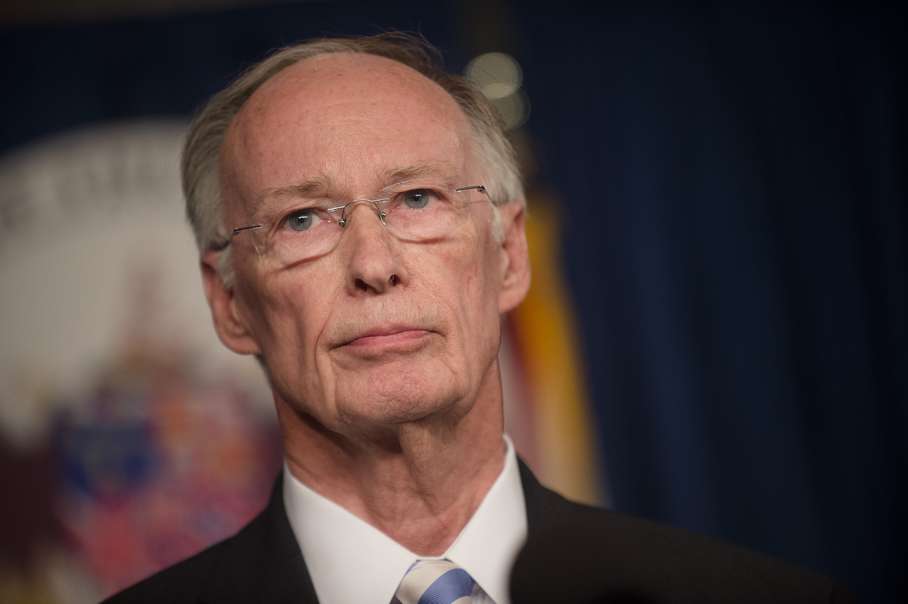
Alabama Gov. Robert Bentley testified under oath Wednesday that House Speaker Mike Hubbard met with him to discuss economic development projects that prosecutors say could have indirectly benefited one of Hubbard’s clients. That client – a municipal gas utility – was paying Hubbard $12,000 a month at the time. Alabama ethics law forbids lawmakers from taking money to lobby the governor. Bentley’s testimony provided a brief but dramatic moment in the criminal corruption trial as Alabama’s two most powerful politicians faced each other, one from the witness stand and the other from the defense table, with jurors paying close attention. The Republican governor is embroiled in his own scandal after admitting making sexually suggestive remarks to a female aide. Twenty-three House lawmakers have resolved to impeach him on charges of corruption and neglect of duty. In his 17-minute testimony, Bentley recalled meeting or working with Hubbard on efforts to recruit a trucking company and an aircraft company to southeast Alabama. Prosecutor John Gibbs showed Bentley reports that Hubbard sent to Southeast Alabama Gas Co. board members, describing how he met with Bentley and his commerce director on projects that could deliver new customers for the utility. Gibbs asked Bentley repeatedly if he believed he was meeting with Hubbard in his capacity as speaker. “I did. He is the speaker of the House,” Bentley said. The gas utility also paid for Hubbard’s attendance at the 2013 Paris Air Show, the major trade show of the aviation industry. The governor said Hubbard was invited to meetings there as part of the official state delegation. The governor offered no commentary on whether what Hubbard did was right or wrong, and the prosecutor focused his questions on facts about the meetings. On cross-examination by a defense lawyer Bill Baxley, Bentley said he thought the projects he met with Hubbard about were good for the state. “Yes sir. ‘Cause it was jobs,” Bentley said. Baxley, who has tried to emphasize Hubbard had to have a job as part of a “citizen legislature,” also had Bentley describe how he has maintained his medical practice while holding public office. Hubbard faces 23 ethics charges accusing him of using his political positions to make $2.3 million in work and investments. Hubbard has maintained his innocence and says the transactions were legal. But others – even some close Hubbard associates – have expressed concerns that Hubbard was violating the ethics law. Political consultant Dax Swatek, one of three lobbyists who had weekly meetings in the speaker’s office, testified Wednesday that he turned down Hubbard’s request for a $150,000 investment in his debt-ridden printing company. It was an “awkward” moment, he testified, but he believed that it was illegal for Hubbard to ask for the money, and for him to give it. Bentley and Hubbard were catapulted to higher office in 2010. Hubbard was elected as House speaker after helping Republicans win control of the Alabama Legislature, and Bentley leapfrogged from the House to the governor’s office after winning a longshot election. Since Hubbard’s indictment in 2014, the two have maintained a congenial tone, saying they could work together despite the expectation that Bentley would be a key witness against Hubbard. Republished with permission of The Associated Press.
Daniel Sutter: Walmart, greeters and an economics lesson
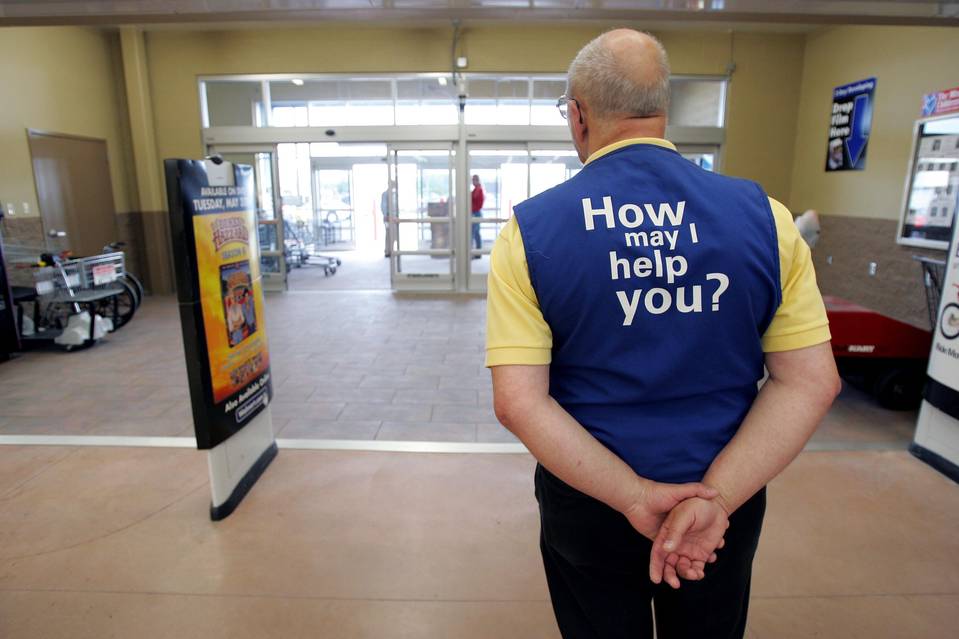
Walmart is bringing back greeters. This story illustrates the difficult decisions businesses face in a market economy, and should caution anyone against thinking that they know too much about the economy. Walmart phased out greeters in 2012 as a cost-cutting measure. Cost control and efficient management of its supply chain have been keys to Walmart’s great success. But no company ever succeeds for long by keeping costs as low as possible. A successful business will incur costs to generate value in terms of performance, product quality, and customer satisfaction. All retailers must guard against theft by customers and employees; Walmart’s losses to theft total about one percent of sales annually. But in controlling theft, retailers must not offend honest customers and employees by treating them like thieves. Walmart instituted greeters across the company after founder Sam Walton observed them at a store in Louisiana in 1980. The store used greeters to control theft: the greeters both welcomed shoppers and watched for customers trying to exit without paying for merchandise. Mr. Walton thought that this was more customer-friendly than security guards at the exits, and adopted greeters company-wide, despite the additional labor costs. Was Walmart’s decision to drop greeters in 2012 a mistake? Perhaps, but businesses must balance costs and value creation using the best available information, and with recognition that what worked yesterday may not work today. Greeters might have been an effective way to control theft in the 1980s but not 2012. Documenting the value created by any one element of a business’ operations is extremely difficult. If Walmart had evidence that greeters were no longer cost effective, I would hesitate to label their phase out a mistake. Greeters provide a concrete illustration of the enormous role of discovery in economics. Economic knowledge is very different from knowledge in the physical or natural sciences. Scientists can uncover “laws” of nature, which we know are true generally. By contrast, economic knowledge is not general and depends on local circumstances, as economist Friedrich Hayek first recognized. Economic knowledge concerns the types of products or quality of service that millions of people want and expect. Our likes and dislikes are not always logical or consistent. And because we differ, what one person perceives as reasonable security another might consider an intolerable insult. Typically we discover what creates value for people through trial and error. No scientific formula will tell a retailer that a search by security guards might offend customers and make them shop elsewhere. Wise business managers are aware that they may always discover something new and valuable even if they haven’t studied economics. Mr. Walton exhibited such an awareness when he quickly recognized how something he hadn’t thought of – greeters – could create value for his company. The pervasiveness of discovery also suggests that we should be relatively forgiving of mistakes. No business is perfect, so correcting and learning from mistakes ends up being crucial. Greeters illustrate the difficulty government experiences in controlling the costs of its programs. Cost data reveal far less than one might imagine. Consider some of the different measures retailers take to control shoplifting: security devices in the packaging, locked display cases, searches of customers’ purses and bags, security cameras, and guards. Walmart can say how much they spent on security last year, but the cost data does not reveal how much different measures reduce losses or offend customers. What is true about greeters applies throughout the economy. Choosing between greeters, security guards and security cameras may appear hard, but is child’s play compared to balancing doctors, nurses, laboratories, home health care, and the hundreds of components of our health care system. In an election year, politicians of both parties will tell us that they know how to manage the economy. But Walmart’s greeters help us understand why government struggles to control the cost of programs like Medicare and Medicaid. ••• Daniel Sutter is the Charles G. Koch professor of economics with the Manuel H. Johnson Center for Political Economy at Troy University and host of Econversations on TrojanVision.
Alabama teacher suspended over test questions about drugs, prostitutes
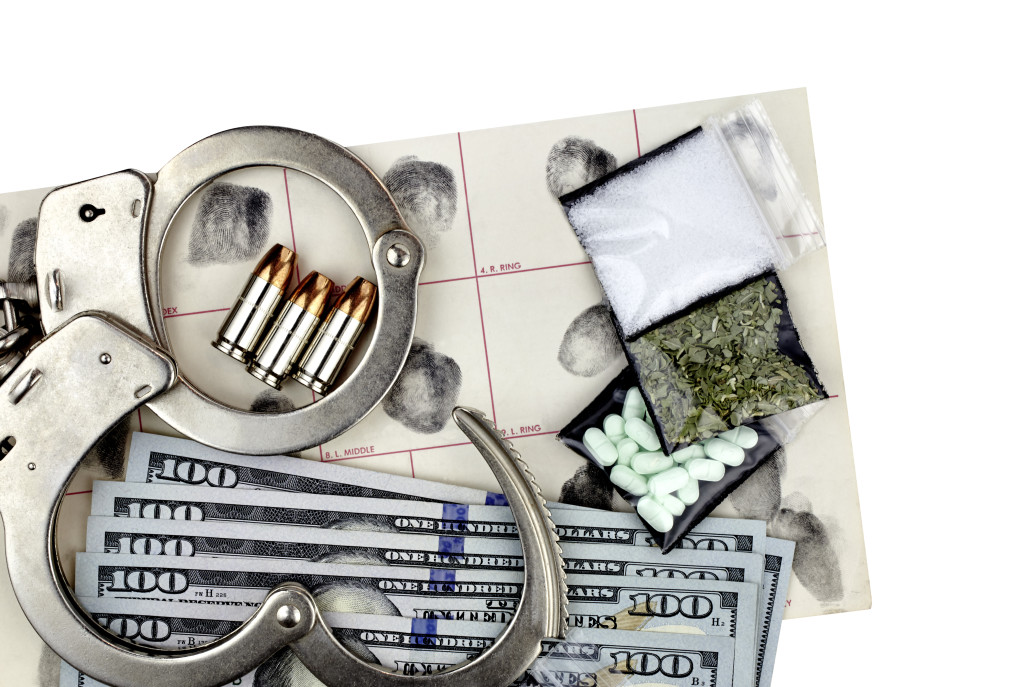
An Alabama teacher is on leave after giving middle school students a test with math questions about prostitutes, drugs and guns, a school official said Wednesday. Rena Philips, a spokeswoman for Mobile County’s public schools, said the educator from Burns Middle School was placed on administrative leave after a parent complained. The teacher’s name isn’t being made public, Phillips said. WALA-TV quoted parent Erica Hall as saying the test was given to her son’s eighth-grade language arts class on Friday. “My son, he took a picture of it in class and he texted it to me. I couldn’t believe it,” Hall said. Hall said students thought the quiz was a joke, but the teacher “told them that it wasn’t it a joke, and they had to complete it and turn it in.” The 10-question quiz included questions about prostitution, drugs, drive-by shootings and spray paint graffiti. According to WALA, one of the questions was: Leroy has 2 ounces of cocaine. If he sells an eight ball to Antonio for $320 and 2 grams to Juan for $85 per gram, what is the street value of the rest of his hold?” It was similar to a math quiz that’s been on the Internet for years with questions about gangs. Philips said the principal and a school police officer investigated after officials learned of the test Tuesday, and the teacher was placed on leave. Hall said the teacher is retiring at the end of the school year, but Philips declined comment on details of her job status. Republished with permission of The Associated Press.
Robert Bentley confirms meeting with Mike Hubbard about jobs
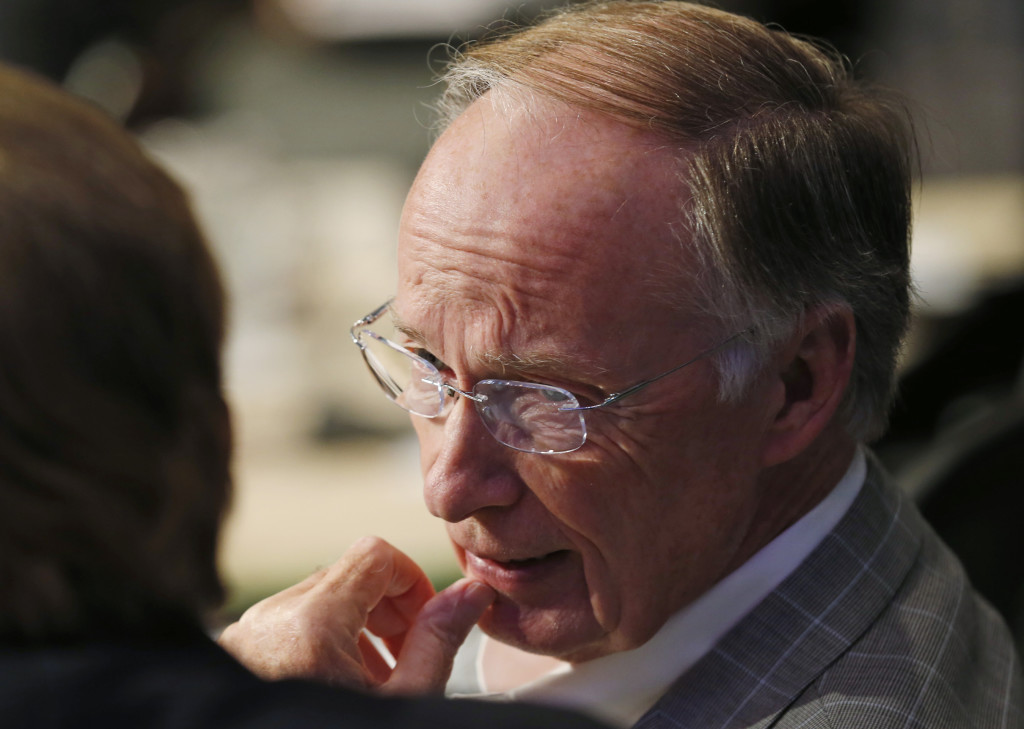
Gov. Robert Bentley has testified under oath in the ethics trial of the Alabama House speaker, saying that he remembers meeting with Mike Hubbard to discuss what he described as economic development projects. Prosecutors are seeking to prove that Hubbard was being paid up to $12,000 a month to illegally lobby the governor on behalf of his business clients – a municipal gas company and a maker of plastic cups. A state prosecutor showed Bentley reports Hubbard sent his clients describing how he met with the governor on projects that could benefit them. The governor said he remembered the meetings. On cross-examination, Bentley told a defense lawyer that he thought the projects were good for the state because they would bring jobs. Bentley faces his own trouble: Eleven lawmakers resolved to impeach him after he acknowledged sending sexually suggestive messages to a female aide. Republished with permission of The Associated Press.
Veteran Clinton aide Cheryl Mills cites email server talks in testimony
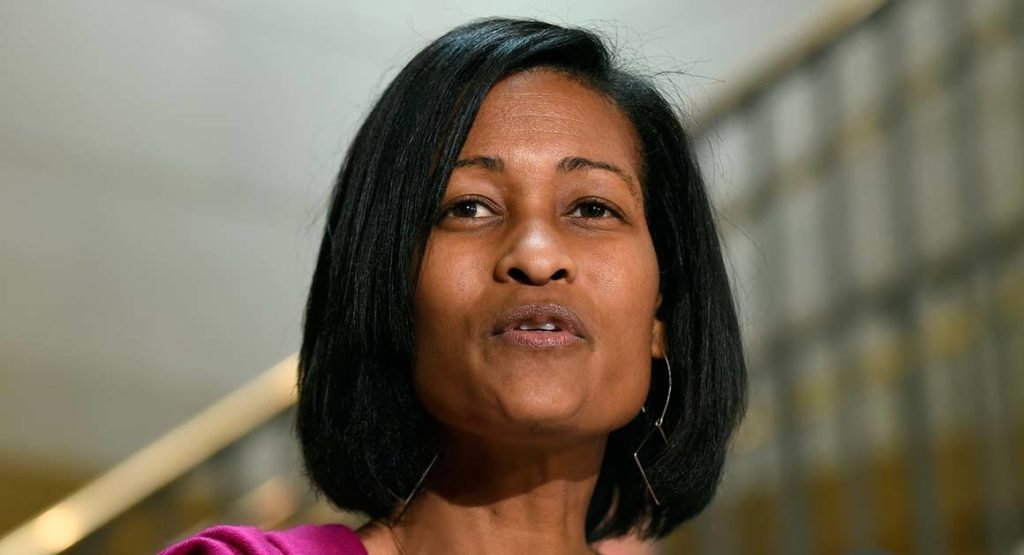
A veteran aide to Democratic presidential candidate Hillary Clinton said she discussed Clinton’s private email server with a technical aide who helped set up and run the system, according to a court deposition released Tuesday by a conservative legal group. Longtime Clinton aide Cheryl Mills acknowledged in five hours of testimony last week that her conversations with the technical aide, Bryan Pagliano, took place after Clinton stepped down as secretary of state in 2013. Mills, who was Clinton’s chief of staff at the State Department and later her private attorney, told lawyers for the legal group Judicial Watch that she spoke to Pagliano several times about the setup of Clinton’s email system. But Mills’ lawyers declined to allow Mills to speak in detail about Pagliano’s work or whether he was working at the time for either Clinton or her husband, former President Bill Clinton. Judicial Watch has sued the State Department for access to public records about Clinton’s use of private emails in her public job. Pagliano has reportedly cooperated with the FBI in its separate probe of Clinton’s emails but last year refused to testify to a congressional committee about his work on the email server, which was installed in the basement of the Clinton’s home in Chappaqua, N.Y. Clinton has said publicly that she is willing to talk with the FBI in its investigation, but said Tuesday in an interview with MSNBC that the agency has not yet scheduled a session with her. Judicial Watch President Tom Fitton said Tuesday that the extended session with Mills and her attorneys provided more information “about her email system, about its impact on FOIA (public records searches) and the fact that Ms. Mills was talking with Mr. Pagliano about this system after she left the State Department.” Much of the session, however, devolved into legal objections and sparring between lawyers for Mills and the legal group over how much she could relate without veering away from careful legal limits imposed by both sides. Mills did say she recalled speaking with Pagliano, who worked both as a private technical consultant to Clinton and as a special State Department aide during Clinton’s tenure, as far back as 2008 – a period when Pagliano was still working as an aide for Clinton’s unsuccessful 2008 presidential try. Mills did not characterize the discussions and said she could not recall in detail any discussions at the time about the set-up of Clinton’s email server. Mills also said she had expected that all the emails that she received from and sent to Clinton’s private email addresses would have been preserved and archived by State officials because her messages originated from the State Department’s email system. “It was my impression that when she emailed, because it was her practice to email people on their State accounts when she was doing State business, that any of those communications would be captured and maintained by the State Department system,” Mills said. On Tuesday Clinton said she never instructed any of her aides to “hide the fact that I was using a personal email … it was obvious to many people,” she told MSNBC. A report from the State Department inspector general last week said that on at least one occasion, a State Department supervisor warned two other agency officials not to raise questions about Clinton’s use of private emails. Republished with permission of The Associated Press
Jac VerSteeg: Hamlet, Clint Eastwood and Jesus on Kenneth Starr
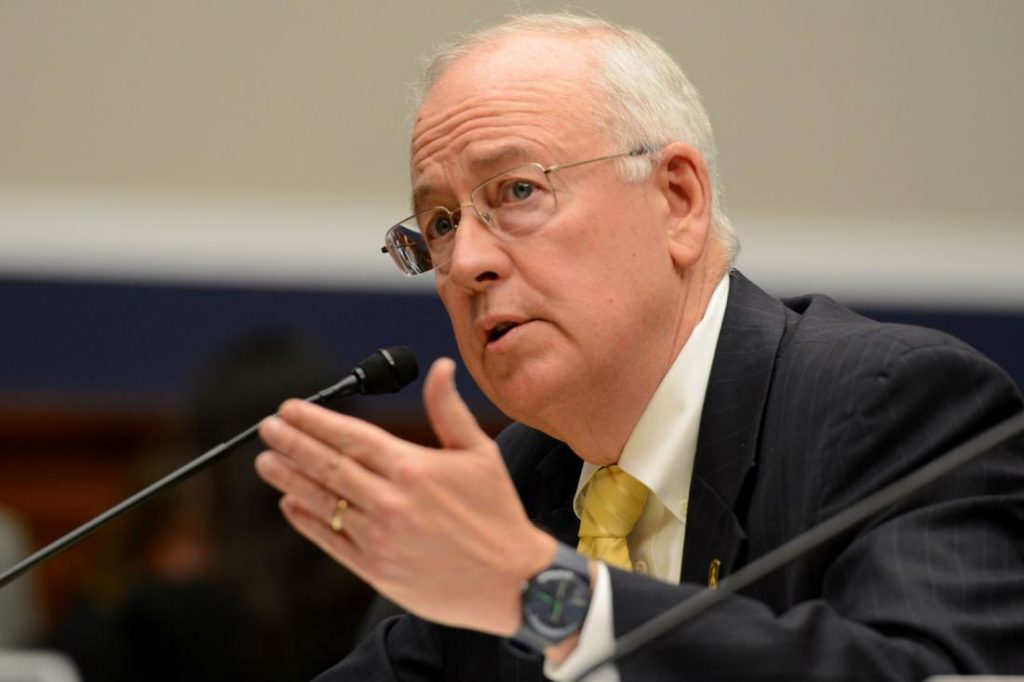
When Hamlet, Clint Eastwood and Jesus agree on something, it must be true. Said Hamlet: “Use every man after his desert, and who should ’scape whipping?” Said Clint in “Unforgiven:” “We all got it coming, kid.” Said Jesus: “He that is without sin among you, let him cast the first stone.” Those quotes should instill underlying caution when criticizing or accusing someone. Beware the boomerang effect. Take, as a recent example, Kenneth Starr. Starr was the independent counsel who probed – and probed, and probed and probed – the allegations of misconduct that led to the House impeachment of then-President Bill Clinton in 1998. Starr’s findings were drenched in sleaze. That’s true in large part because Bill Clinton’s actions were drenched in sleaze. Nevertheless, Starr has been seen as the run-amok tool of a Republican Party hell-bent on removing Clinton from office using the pretext of a sex scandal that did not rise to the level of an impeachable offense. And, since the Senate did not convict and remove Clinton, that judgment has festered. Nearly two decades later, Starr is dealing with his own sex scandal. As president of Baylor University in Texas, Starr presided over an administration that enabled the school’s athletics department to cover up sexual assaults by players. The conduct was so egregious that Baylor fired football coach Art Briles and ousted Starr as president. Oh, the irony. Clinton clung to his presidency; Starr relinquished his. The man who left no stone unturned (or dress unexamined) when pursuing Clinton buried his head in the sand when his own nest was being befouled. Had Starr carried out investigations at Baylor with the same zeal he brought to the Clinton probe, he and the university would have avoided major embarrassment. Even worse for Starr, his laxity had the effect of harming a number of victims. Not only did they suffer the initial assaults, they suffered from the ongoing cover-ups, which denied them dignity and justice. There is evidence Starr has been humbled by experience. Just days before he was removed as Baylor president, Starr unexpectedly rose to Clinton’s defense in remarks at a forum hosted by the National Constitution Center in Philadelphia. Amid attacks from Donald Trump that dragged up Bill Clinton’s exploitation of Monica Lewinsky and renewed the completely unfounded speculation that Hillary Clinton might have been involved in the “murder” of Vince Foster, Starr praised Clinton’s compassion and praiseworthy actions since leaving office. “His compassion for human beings is absolutely clear,” Starr said of Clinton. … “The ‘I feel your pain is absolutely genuine.” “There are certain tragic dimensions which we all lament,” Starr said. “That having been said, this redemptive process afterwards, we have certainly seen that powerfully.” You have to wonder if Starr was pondering his own situation and preparing for his own redemptive journey. It’s a journey others involved in the attempt to remove Clinton from office have had to undertake. Newt Gingrich and Bob Livingston left the House amid revelations about their own sexual escapades. They were followed by Dennis Hastert, who has just been sentenced to prison in a case that revealed he had sexually abused young boys while he was a teacher. For a Florida angle, I would note that then-Rep. Bill McCollum was a leader in presenting the House’s impeachment case to the Senate. He has not been hit with a sex scandal. But neither did his lead impeachment role boost his political fortunes. He lost a Senate bid to Bill Nelson in 2000 and failed to win the GOP Senate nomination in 2004. After being elected attorney general in 2006, he lost to Rick Scott in his 2010 bid for the GOP’s gubernatorial nomination. While it is appropriate to note the irony in Starr’s current disgrace and in the political and legal problems that have plagued many of those who went after Clinton, I would caution against unbridled taunting, sneering and rejoicing. Don’t ignore it. Corruption and faults need to be exposed. But the proper emotion, folks, is sadness. We’re all humans. In one way or another, we all got it coming. And to quote anonymous: “Payback is a bitch.” ___ Jac Wilder VerSteeg is a columnist for The South Florida Sun-Sentinel and former deputy editorial page editor for The Palm Beach Post.
Robert Bentley arrives to testify in Mike Hubbard ethics trial
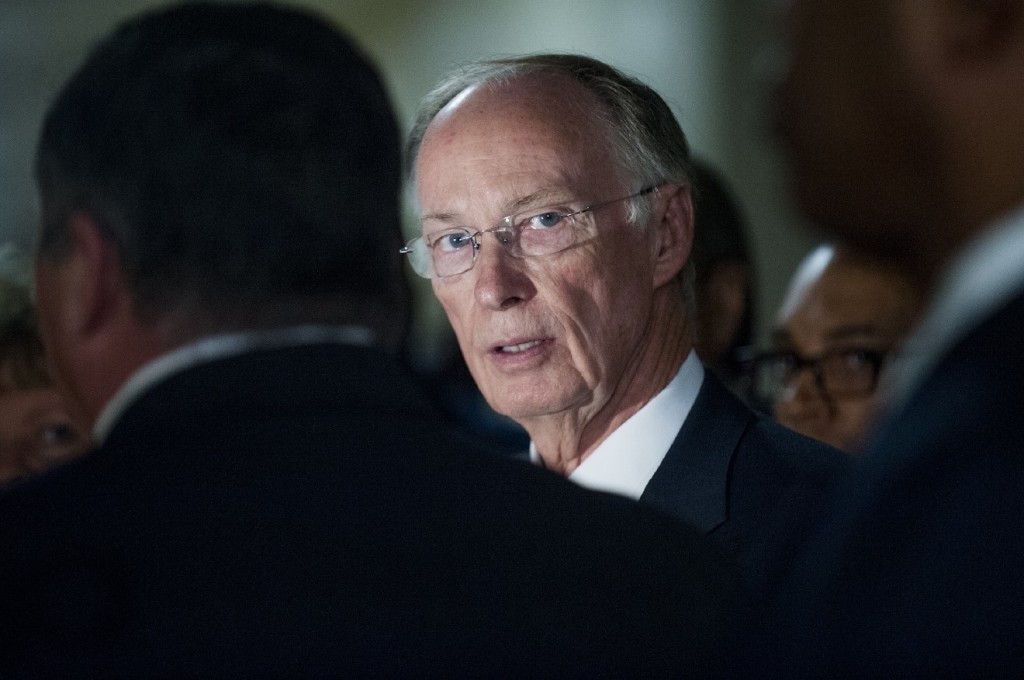
Alabama Gov. Robert Bentley has arrived at a Lee County courthouse to testify in the ethics trial of Alabama House speaker Mike Hubbard. Bentley is expected to be one of the first witnesses Wednesday morning. Prosecutors will ask Bentley about meetings with Hubbard and if Hubbard lobbied him on behalf of a business client. Alabama ethics law prohibits legislators from being paid to lobby executive branch offices. The governor was met at the courthouse by his legal adviser, personal attorney and spokeswoman. Bentley’s testimony is expected to be a dramatic moment in the corruption trial of the Republican speaker. Hubbard faces 23 ethics charges accusing him of using his political positions to make $2.3 million in work and investments. Hubbard has maintained his innocence. However, the Republican governor in recent months has been at the center of his own scandal. Bentley admitted making sexually charged remarks to a former female aide. Republished with permission of The Associated Press.
Testy Donald Trump takes his war with the press to a new level
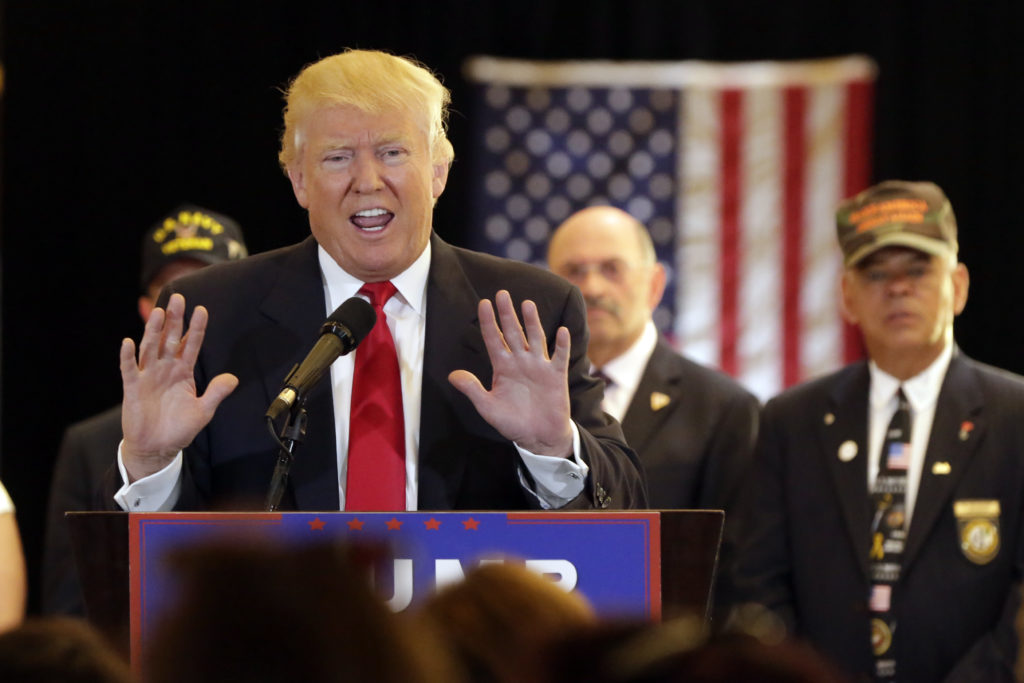
Donald Trump‘s heated war with the media reached new heights as he turned the brag-worthy feat of raising $5.6 million for veterans’ charities into a sparring match with reporters pressing him on the issue. “The press should be ashamed of themselves,” a defensive Trump railed during a Tuesday news conference at Trump Tower, called to announce a list of 41 charities that received a cut of the money he raised during a highly publicized January fundraiser. The presumptive Republican presidential nominee had previously declined to disclose which charities had received the $6 million he’d claimed to have raised, and his campaign had gone back and forth about how much pledged money had come through. The Washington Post had pressed for an accounting of the donations, and several charities said they received checks just last week. Throughout Tuesday’s 40-minute question-and-answer session, Trump accused the media of being “unbelievably dishonest” in their treatment of him. “I sent people checks of a lot of money. … And instead of being like, ‘Thank you very much, Mr. Trump,’ or ‘Trump did a good job,’ everyone’s saying: ‘Who got (the money)? Who got it? Who got it?’ And you make me look very bad,” he complained. “I have never received such bad publicity for doing such a good job.” While Trump has frequently made the media a punching bag, calling out reporters during his signature rallies, the taunts Tuesday were intense, even for him. The billionaire mogul interrupted his recitation of the list of groups receiving portions of the money to complain about the way reporters had called up charities to try to verify his contributions. He called the political press “disgusting” and dismissed one ABC News reporter as “a sleaze.” While Trump’s fundraiser, held opposite a Fox News debate he chose to boycott, should have been a positive story for Trump, his campaign’s refusal to disclose details about the money raised became a sticking point. Trump insisted Tuesday that “most of the money went out quite a while ago,” but that didn’t seem to be the case. The Associated Press spoke or left messages with each of the organizations Trump named. Of the 26 groups that responded by Tuesday, half said they had received checks from Trump just last week. Several said the checks were dated on or about May 24 and shipped out by overnight express — the same date as a Trump interview with The Washington Post, which for weeks had been pressing his campaign to disclose the recipients of the millions raised during the splashy telethon-style fundraiser in Iowa. Indeed, more than a dozen big checks were rushed out of New York early last week, bound for veterans’ charities around the country. The largest, a $1 million check dated May 24 and drawn from Trump’s personal account, was addressed to the Marine Corps-Law Enforcement Foundation, a small Tuckahoe, New York, group that provides scholarships to the children of fallen Marines. The foundation had presented Trump with an award at its 2015 gala held at a ritzy New York hotel. Trump’s campaign manager, Corey Lewandowski, had originally told The Post that the Iowa event had raised about $4.5 million — less than the $6 million originally announced by Trump — because some who’d pledged contributions had backed out. Appearing Tuesday on CNN, Democratic presidential front-runner Hillary Clinton said she was glad Trump had finally given out the promised money. “The problem here is the difference between what Donald Trump says and what Donald Trump does,” Clinton said. “He’s bragged for months about raising $6 million for vets and donating $1 million himself, but it took a reporter to shame him into actually making the contribution.” Trump repeatedly insisted during the news conference that he didn’t want “credit” for the contributions. However, he hadn’t appeared shy about giving away poster-size checks at campaign events in the weeks after the fundraiser. On Jan. 30, just before the Iowa caucuses, he gave a $100,000 check to the Puppy Jake Foundation, which provides service dogs to wounded veterans. Representatives from the foundation, accompanied by several service dogs, accepted the check at the Adler Theater in Davenport, Iowa, where Trump was being interviewed on stage. The next day, in Council Bluffs, Trump presented another check, also for $100,000, to Partners for Patriots, which also provides service dogs to disabled veterans. The public check presentations trickled off within days, though some of the groups contacted by the AP did report receiving checks in February, March and April. Trump spokeswoman Hope Hicks denied Tuesday that timing had anything to do with questions from the media. “Mr. Trump’s team worked very hard to complete this lengthy process prior to Memorial Day Weekend,” she said. The campaign also said it had taken months to carefully vet each of the groups receiving money. Trump, who has refused calls to moderate his tone and temperament, also said he has no plans to change his tone with the press if he’s elected to the White House. “Yeah, it is going to be like this,” he said of potential future news conferences led by a President Trump. Republished with permission of The Associated Press.

